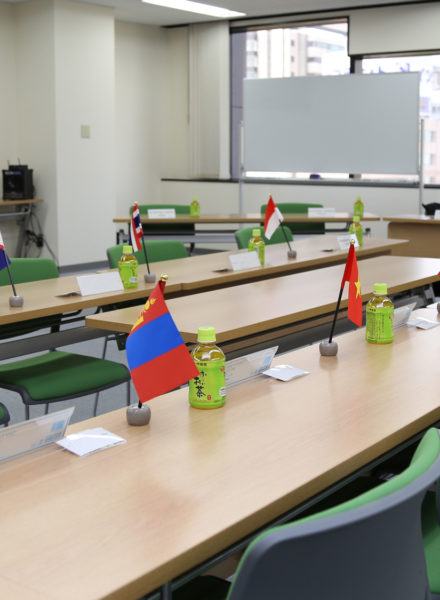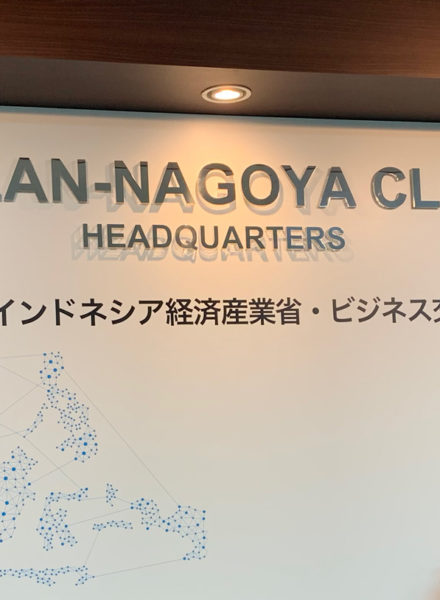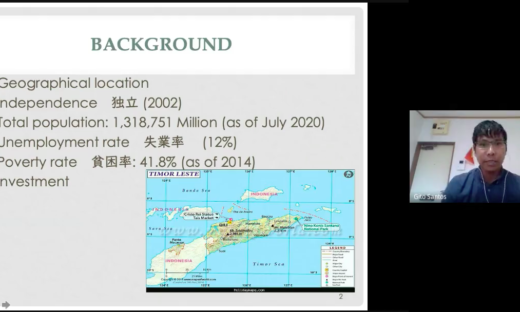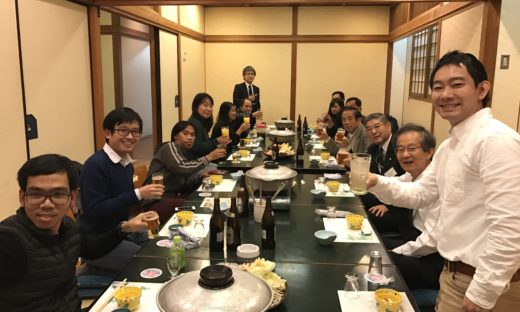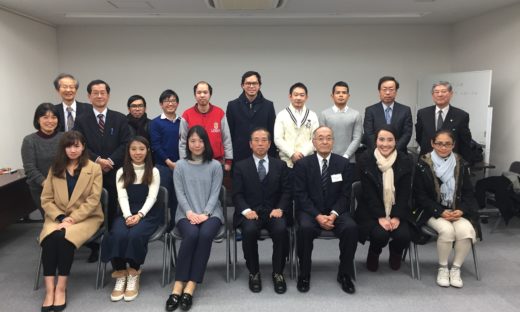第11回ミーティング報告書 2015年6月25日 (The 11th Meeting Report June 25, 2015)
ASEAN諸国と日本のジェンダー事情
6月のテーマは、「Gender」です。先月は、荻巣先生から、名古屋大学がジェンダーに関する世界ベストテンの大学に選ばれたとのご報告をお聞きしました。それを受けて、日本社会のジェンダー意識について議論することになりました。
その国のジェンダーの状況は、政治分野における女性の割合にあらわれます。ジェンダーの意識が進む北欧のスェーデンでは、44.7%、ノルウエーで39.6%と男女の比率に迫ります。一方、日本の状況は7.9%で世界の160番目の順位と北欧の状況からは、はるか遠いところにあります。ASEAN-NAGOYA CLUBの留学生の皆さんが、進んだ日本に学ぶという点で、ジェンダー問題に関しては、とても指標性となる国になっていません。
留学生の皆さんとの議論では、むしろ日本側は受身となります。日本はASEANと比較するとジェンダーに関してはむしろ意識は遅れているといっても過言ではありません。
年末のASEAN共同体の発足により、今後、日本企業のASEAN各地域への進出が活発になると予想されますが、日本の技術、知見を移転する際に、ジェンダーに関する日本の意識をそのまま持ち込むとすれば、大きな問題が生じるかもしれません。気をつけたほうがよいといえます。日本企業の皆さんには、私たち日本社会のすぐれたところ、遅れたところ、両面を冷静に判断し、進出をしていただきたいと思います。またASEANの留学生の皆さんには、ジェンダー問題に関する日本の現状を正しく理解して欲しいものです。
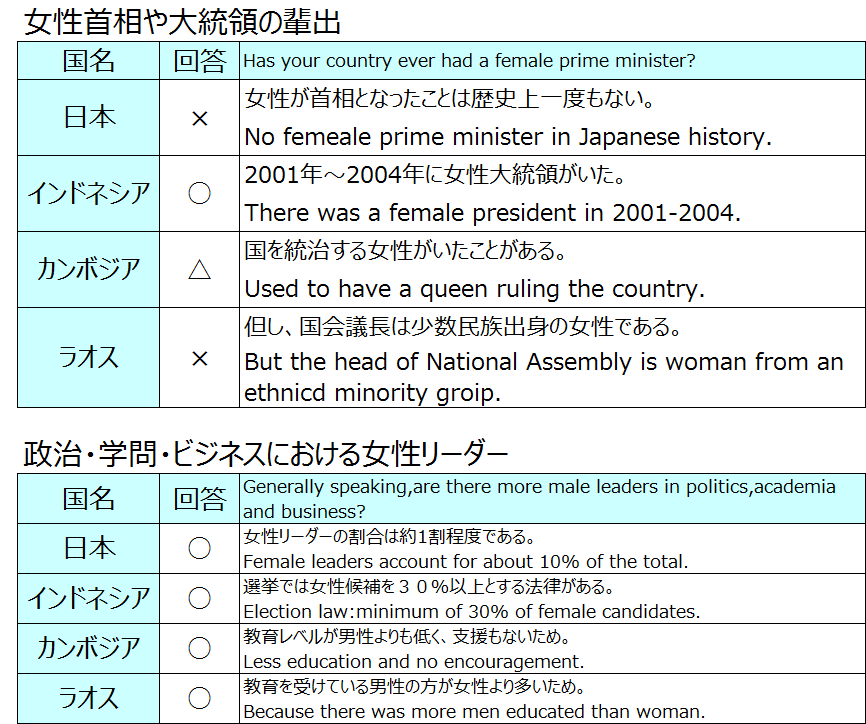
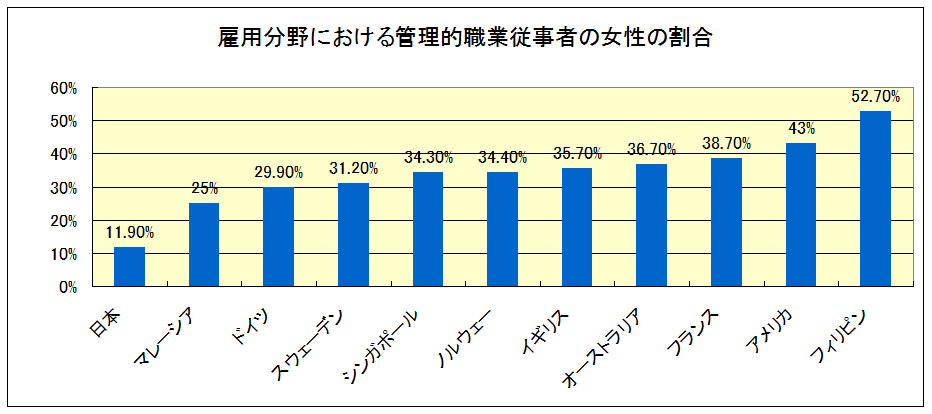
出所
1.労働力調査(基本集計)平成23年(総務省)、データブック国際労働比較2012((独))労働政策研究・研究機構)より作成。
2.日本は2011年、オーストラリアは2008年、その他の国は2010年のデータ
3.管理的職業従事者とは、会社役員、企業の課長相当職以上、管理的公務員等をいう。また管理的職業従事者の定義は国によって異なる。
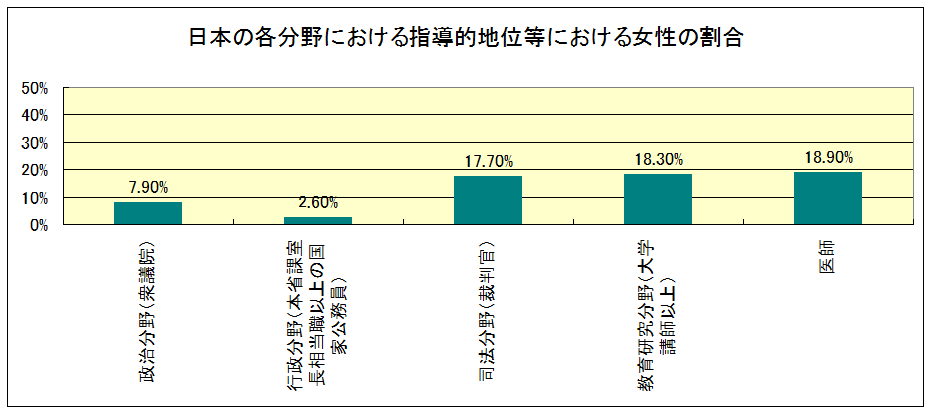
備考
「女性の政策・方針決定参画状況調べ」(平成24年12月)より。原則として平成24年のデータ。
Gender circumstances of ASEAN countries and Japan
Our theme of discussion at this time is is “Gender”. Last month, we heard from Professor Ogisu that Nagoya University was selected as one of the world’s top ten universities on gender. In response, we decided to discuss gender awareness in Japanese society.
The gender situation in a country is reflected in the proportion of women in the political arena. In Sweden, where gender awareness is advancing, the ratio is close to 44.7% and in Norway 39.6%. On the other hand, the situation in Japan is 7.9%, which is far from the 160th place in the world and the situation in Northern Europe. ASEAN-NAGOYA CLUB international students are not a very indexable country when it comes to gender issues in terms of learning from advanced Japan.
In discussions with international students, the Japanese part is rather passive. It is no exaggeration to say that Japan is rather behind in gender awareness compared to ASEAN.
With the establishment of the ASEAN Community at the end of the year, it is expected that Japanese companies will become more active in each region of ASEAN, but if Japan’s gender awareness is brought in as it is when transferring Japanese technology and knowledge, it may cause big problems. I hope that this meeting will give Japanese corporates a broad insight into gender roles and can weigh the good and bad points in order to increase the role of Japanese corporates in the international market. this also provided insight for International students to understand the situation and gender position in Japanese society.
Please take a look at the tables below. The first table shows the woman role in ruling the county as a president/ prime minister/ queen. In Japan, there is no female prime minister in Japanese history. In Indonesia, there was a female president in 2001-2004. In Cambodia, they used to have a queen ruling the country. In Laos, the head of National Assembly is a woman.
In the second table, we can see the percentage of female leader in politics, academics, an business sectors in those 4 countries.
The third table describes the percentage of female managerial workers in the employment sectors in Japan, Malaysia, Germany, Sweden, Singapore, Norway, England, Australia, French, USA, and The Philippines. A managerial worker is a company officer, a manager of a company or higher, a managerial public employee, etc. Also, the definition of managerial workers varies from country to country.


Source:
1. Labor Force Survey (Basic tabulation) Created from 2011 (Ministry of Internal Affairs and Communications), Data Book International Labor Comparison 2012 ((Germany)) Japan Institute for Labor Policy and Research).
2. Data for 2011 for Japan, 2008 for Australia, and 2010 for other countries.
The percentage of women in leadership position in each field in Japan is quite low as shown in the table below:
1. Political Elites (House of Representatives)
2. Administrative Fields
3. Judiciary Field (Judge)
4. Education and Research ( University Lectures or above)
5. Doctor
Remarks from:
“Women’s Policy / Policy Decision Participation Status Survey” (December 2012). As a general rule, 2012 data.
参加者:
<日本人メンバー>
小里氏、西氏、箕浦氏、松久氏(コーディネーター)、田中氏(スタッフ)
<留学生メンバー>荻巣先生(コメンテーター)、島津先生(コーディネーター)、村田(教育学部生)、Mr.Mardiansyah Mardis、Mr.Indra Kesuma Nasution、Mr.Pak Chanlino、Ms.Sisouk Boualaphiane、Ms.Sreyden Vong
